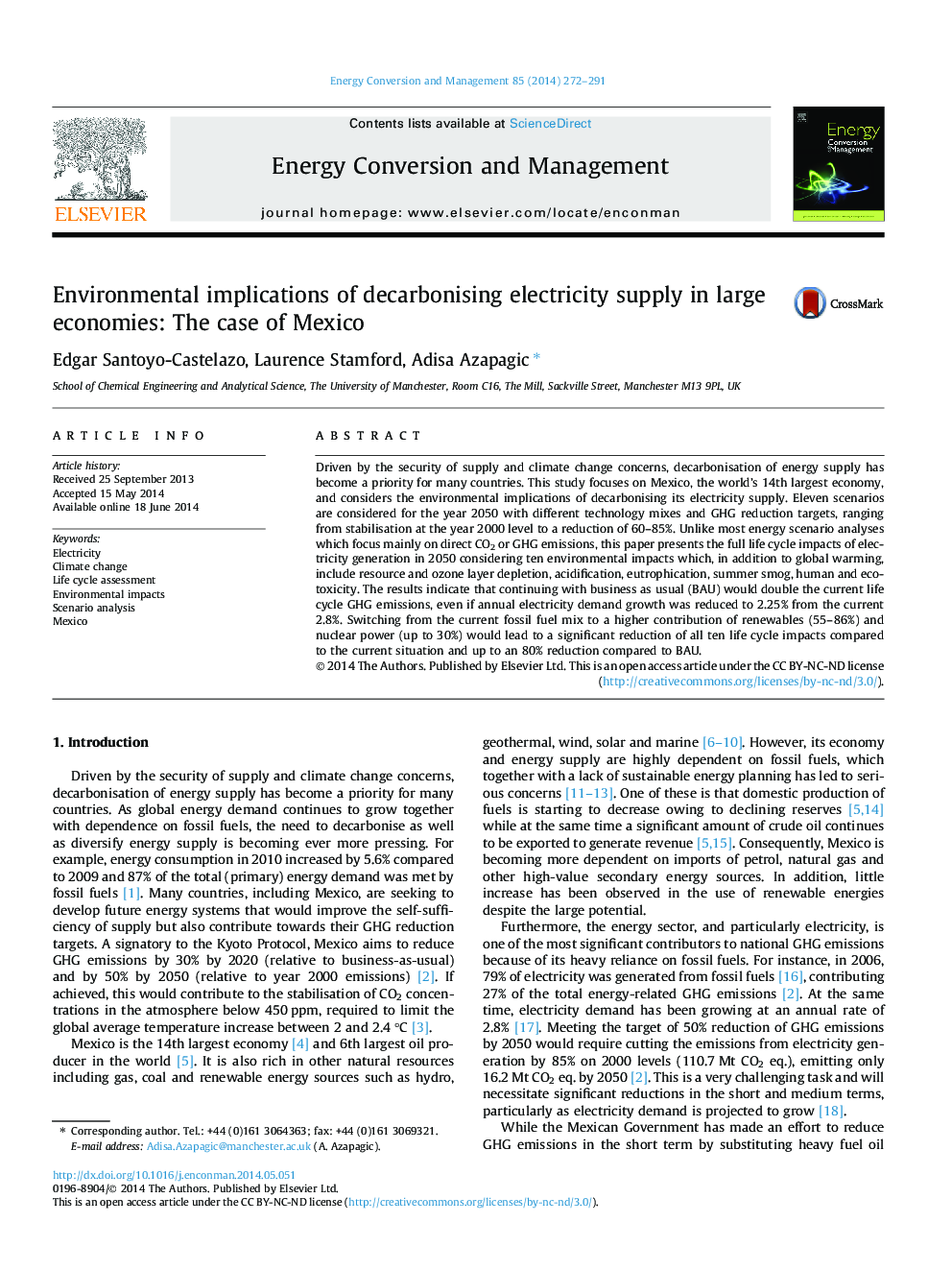| Article ID | Journal | Published Year | Pages | File Type |
|---|---|---|---|---|
| 7164689 | Energy Conversion and Management | 2014 | 20 Pages |
Abstract
Driven by the security of supply and climate change concerns, decarbonisation of energy supply has become a priority for many countries. This study focuses on Mexico, the world's 14th largest economy, and considers the environmental implications of decarbonising its electricity supply. Eleven scenarios are considered for the year 2050 with different technology mixes and GHG reduction targets, ranging from stabilisation at the year 2000 level to a reduction of 60-85%. Unlike most energy scenario analyses which focus mainly on direct CO2 or GHG emissions, this paper presents the full life cycle impacts of electricity generation in 2050 considering ten environmental impacts which, in addition to global warming, include resource and ozone layer depletion, acidification, eutrophication, summer smog, human and eco-toxicity. The results indicate that continuing with business as usual (BAU) would double the current life cycle GHG emissions, even if annual electricity demand growth was reduced to 2.25% from the current 2.8%. Switching from the current fossil fuel mix to a higher contribution of renewables (55-86%) and nuclear power (up to 30%) would lead to a significant reduction of all ten life cycle impacts compared to the current situation and up to an 80% reduction compared to BAU.
Related Topics
Physical Sciences and Engineering
Energy
Energy (General)
Authors
Edgar Santoyo-Castelazo, Laurence Stamford, Adisa Azapagic,
